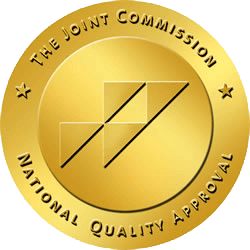The terms dual diagnosis and co-occurring disorder are often used interchangeably to define when someone has a substance and mental health disorder happening at the same time. However, there are some definitive differences between these two terms that people should understand. Knowing the difference between the two can greatly impact and increase the ability of those suffering from addiction to recover and have long-lasting results. When looking to help teens struggling with addiction and mental health, it is essential to understand their struggles. A dual-diagnosis treatment program is essential to helping teens who want to make significant life changes.
What Is the Difference Between Dual Diagnosis vs. Co-Occurring Disorders?
Understanding the distinct differences between these two disorders is vital to treat teens effectively. Without a proper distinction between these definitions, one cannot properly treat someone suffering from either condition.
Dual Diagnosis
When distinguishing between dual diagnosis vs. co-occurring disorders, it is essential to realize that a dual diagnosis involves more than two conditions simultaneously. These conditions do not need to be mental health and substance use disorders. Instead, a dual diagnosis is combining any physical conditions occurring at once. A teen with a substance use disorder and diabetes has a dual diagnosis. In addition, a dual diagnosis does not need to include a substance use disorder. It can be any medical condition that physically impacts a teen’s body, such as diabetes and high blood pressure. While a teen’s dual diagnosis might be a result of a substance use disorder, there needs to be one other disorder present.
Co-Occurring Disorders vs. Dual Diagnosis
When defining co-occurring disorders vs. dual diagnosis, it is essential to understand that co-occurring disorders are specifically related to substance use disorders and mental health disorders. Adults with co-occurring disorders often are faced with many complex life challenges. Studies have shown an increased relapse rate because of self-medicating. They also often face homelessness, HIV, and hepatitis C infection at a greater rate than their peers, who have only to overcome mental health or substance use disorders.
Co-Occurring Disorders
When someone has a co-occurring disorder, they will experience some of the following symptoms:
- Anxiety
- Moodiness
- Inability to concentrate
- Confusion
- Isolation and withdrawal from family and friends
- Insomnia
- Change in appetite
- Irritability
- Anger
- Difficulty socializing
- Appearing delusional
- Experiencing hallucinations
- Physical aches and pain
- Having suicidal thoughts
Although it might seem okay to position dual diagnosis vs. co-occurring disorders, they are different conditions that need additional support from a medical practitioner or mental health therapist.
Learn the Difference Between Co-Occurring Disorders vs. Dual Diagnosis at Destinations for Teens
Understanding the distinctions between dual diagnosis and co-occurring disorders is vital if we are to truly support teens navigate their substance use, mental health, and physical conditions. Whether discussing co-occurring disorders vs. dual diagnosis, we must understand the treatment needs of each person. Co-occurring disorders must receive integrated treatment that will allow support for substance use disorders and mental health. Through individual and group counseling sessions and medication, teens will be treated with guidance and care. Whether teens are battling a substance use disorder associated with cocaine, heroin, or painkillers, mental health issues such as anxiety or depression will exacerbate their conditions. At Destinations for Teens, we distinguish between dual diagnosis and co-occurring disorders to help teens receive the appropriate care and begin to learn to manage their lives and get ready for adulthood. We provide inpatient and outpatient treatment services geared at assisting teens in learning to live positively and manage their disorders effectively. Contact us at 877.466.0620 to begin helping your teen manage their dual diagnosis or co-occurring disorder.


